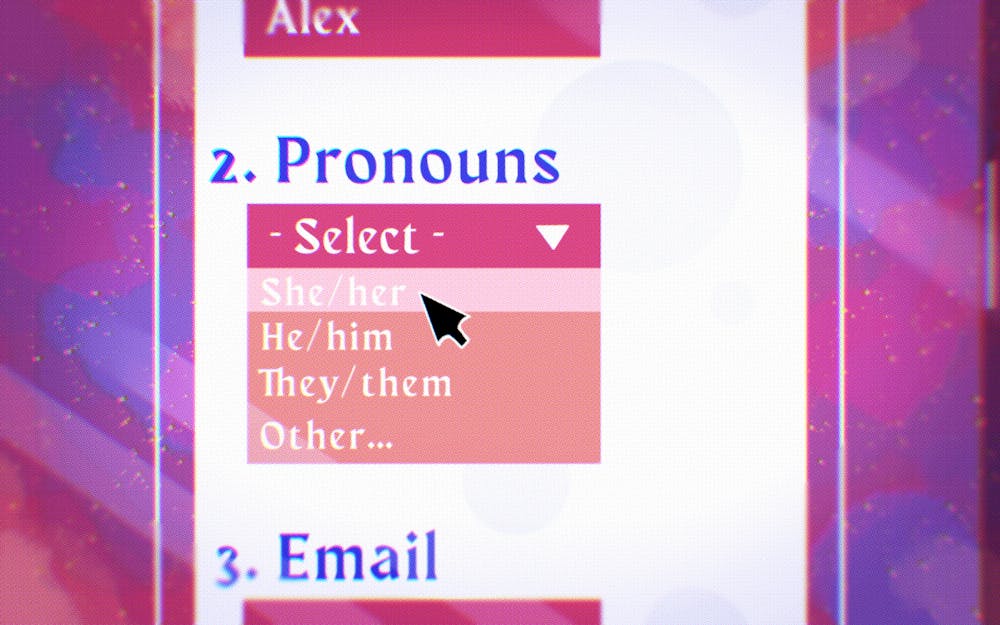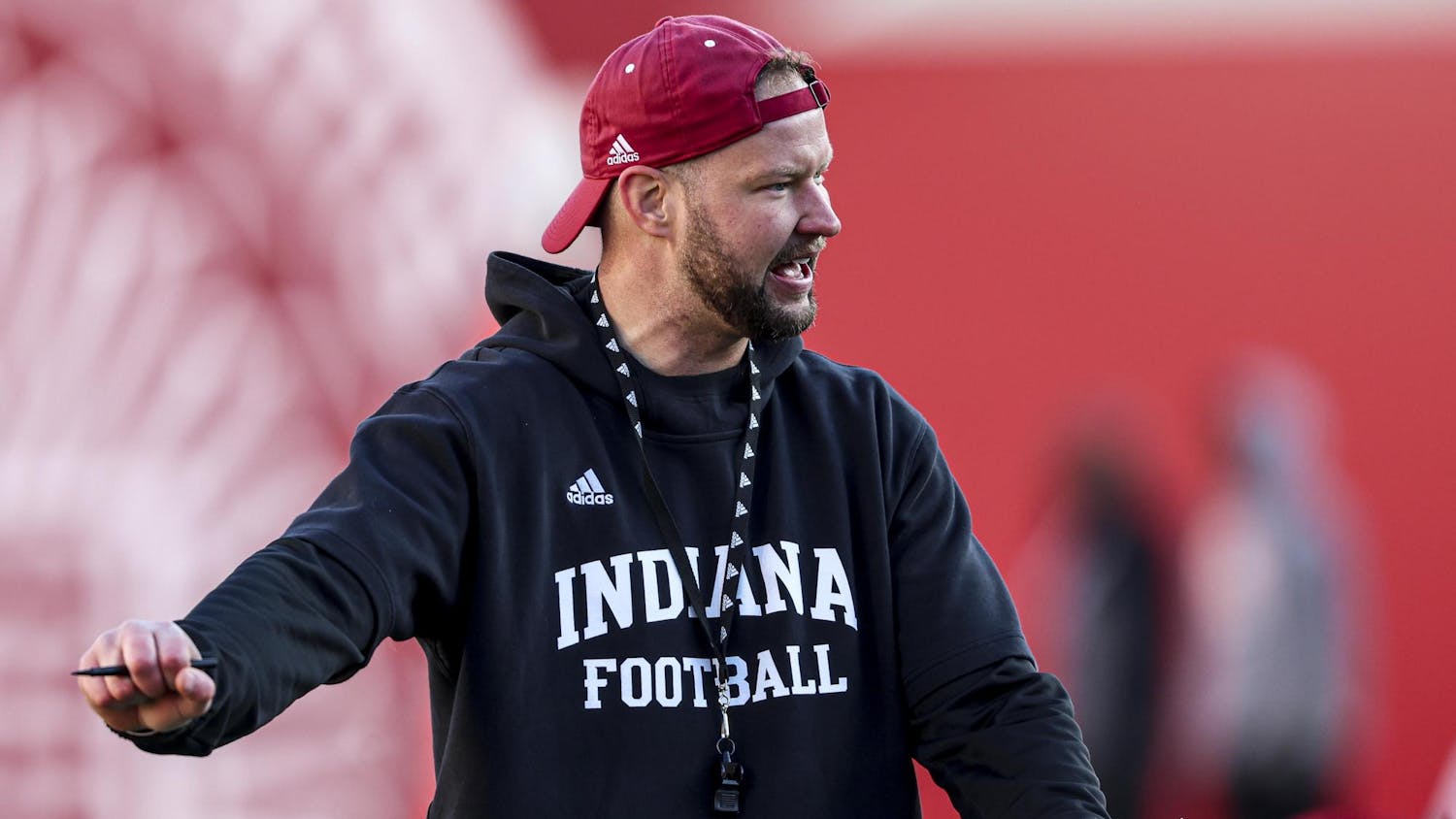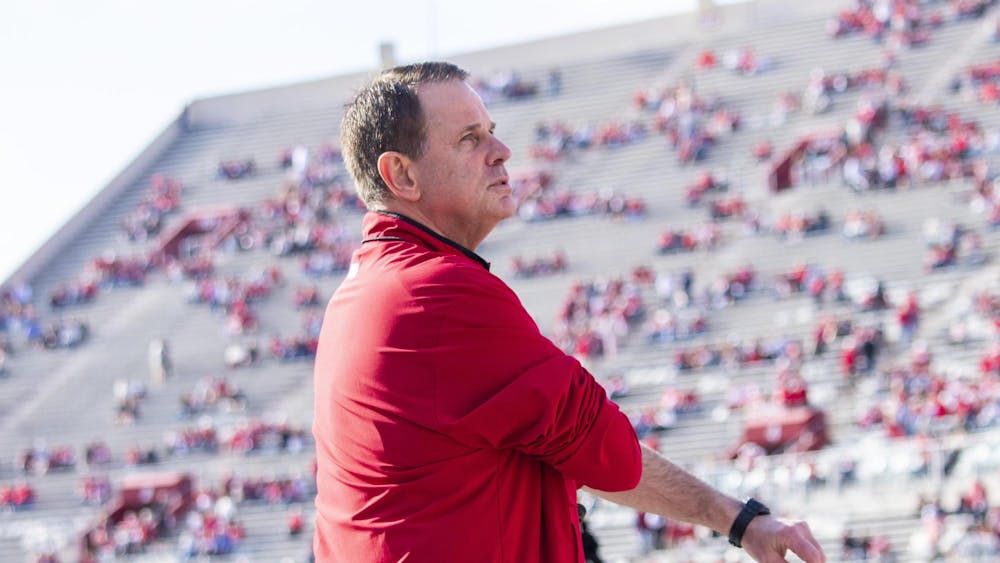When I came to IU, I never had been asked what my pronouns were, but I didn’t take it as an insult and answered appropriately.
Over the last few years, many people have started putting their pronouns in their social media bios. I have transgender friends who asked me to publicize my pronouns because for them, it helps social media become a safe space so the world can feel a little more inclusive.
To some, being asked their pronouns is just a question they answer and move on. For others, it means the world to know someone would take the time to refer to them as they are. Although I have never personally felt this way, I know a lot of people who go by different pronouns than what they were given at birth.
Putting your pronouns in your social media bio is a harmless thing everyone should do, unless you are unsure about yours or are not out to the bulk of your followers.
The movement likely gained traction through transgender and nonbinary people asking cisgender LGBTQ people and allies to put their pronouns in their bios. It initially protected trans people, as one way to target them was to look for people whose pronouns were different from their gender assigned at birth.
Freshman Noah Fears said it is something people do out of kindness, but it is not a requirement.
“I don’t require it of my friends, my friends just do it,” Fears said. “I don’t necessarily look down on people that don’t, but it could be a sign that maybe I wouldn’t want to associate with that person.”
Recently, I have noticed more teachers asking students their pronouns on the first day of class or to put their pronouns on Canvas. When we started classes in fall 2020, I first noticed people putting their pronouns next to their names on Zoom. Fears said for them, doing this depends on what type of class it is.
“If it's an (economics) class, I am not necessarily going to promote that because I don’t know how safe of an environment it is,” they said. “Another class I took, ‘Race, Gender and Class,’ people in there should already be somewhat aware of it so it feels like a safer place. It just depends on the environment I’m going into.”
Fears discussed the safety aspect of teachers asking students what pronouns they use.
“When you ask someone their pronouns, you also have to make sure ‘Is it safe to use this in all contexts?’” Fears said. “‘Should I just use it with people who are close to me who would get it or is it okay if I do this in public?’”
There is definitely a generational gap regarding pronouns. My writer bio has my pronouns, and when I send my articles to family members, they would ask me why I have them there. Not all older people are against it, but some just don’t understand why it is something people do now. If one of your family members asks you about it, explain it to them.
If you are someone who does not have their pronouns in their social media bios, consider adding them. If that is something you are not comfortable with, try to be a good ally in other ways. If I could take anything away from learning about this issue, it is that having pronouns on your social media is important — it means a lot when people see it there.
Olivia Franklin (she/her) is a junior studying journalism with a minor in political science. She is a member of the swim club at IU and the Women in Media organization.






